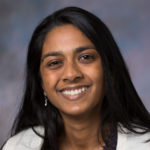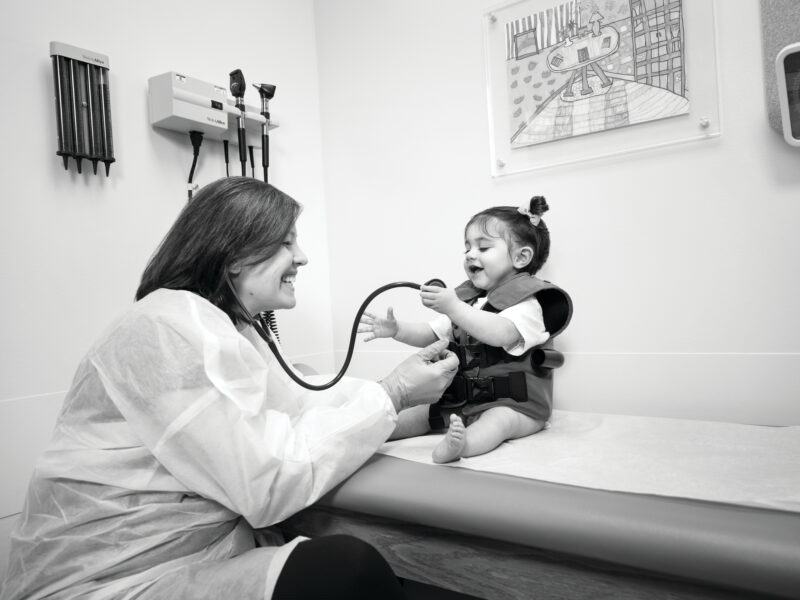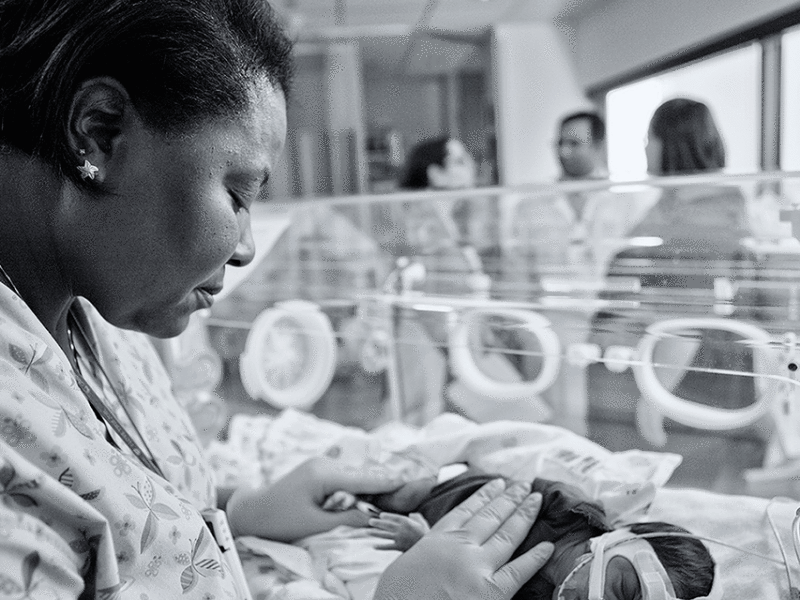Hearing Without Cochlear Nerves
Hearing Without Cochlear Nerves https://pediatricsnationwide.org/wp-content/themes/corpus/images/empty/thumbnail.jpg 150 150 Tiasha Letostak, PhD Tiasha Letostak, PhD https://pediatricsnationwide.org/wp-content/uploads/2021/03/Tiasha-Letostak.jpg- April 28, 2016
- Tiasha Letostak, PhD
Auditory brainstem implant devices may help young children with sensorineural hearing loss.
Sensorineural hearing loss (SNHL) is the most common type of hearing loss, accounting for about 90 percent of all hearing loss worldwide. SNHL involves damage to the inner ear (cochlea) or to the nerve pathways from the inner ear to the brain, and thus cannot be managed via hearing aids.
For more than 30 years, auditory brainstem implantation (ABI) has been used in adolescents and adults with SNHL due to neurofibromatosis 2 (NF2), with more than 1,000 ABIs performed worldwide.
However, Oliver F. Adunka, MD, FACS, director of the Hearing Program at Nationwide Children’s Hospital, notes that, as of November 2015, the FDA has not approved ABIs for children under the age of 12 or for any patients without NF2.
“Since ABI remains unapproved by the FDA for children under age 12, our pediatric patients currently receive an off-label device, also known as a humanitarian use device,” says Dr. Adunka, who is also a professor and the division director of Otology, Neurotology and Cranial Base Surgery at The Ohio State University. “This is done only after careful analysis of the diagnostic protocol, as well as the potential risks and benefits.”
The first case of ABI at Nationwide Children’s was performed on a 2-year-old boy named Colton who previously received a cochlear implant for bilateral profound hearing loss but had not benefitted due to the absence of the cochlear nerve. After activation of the new device, the patient initially responded to sound.
“Over the first few months of implant use, the parameters of the implant will be slightly modified,” explains Dr. Adunka, who is also director of Pediatric Otology at Nationwide Children’s. “However, these changes are much more subtle when compared to the mapping changes typically employed with cochlear implants.”
Although scientific reports indicate that surgeons outside of the United States have been doing ABI surgeries in children for more than a decade, no formal safety or feasibility studies under regulatory oversight have confirmed its benefits.
For this reason, the University of Southern California’s Keck School of Medicine and several other institutions are conducting a three-year clinical trial of ABI for children under age 5. The trial, which began in March 2014, has led to successful implantation in four children.
According to reports, study participants are progressing at expected or better rates, offering hope for children who were formerly not considered surgical candidates for ABI, including those with congenital malformations and other causes of retrocochlear deafness.
References:
- Noritaka K, Yagmurlu K, Matsuo S, Miki K, Abe H, Rhoton A. Auditory brainstem implantation: anatomy and approaches. Neurosurgery. 2015 Jun;11:306-321.
- The Hearing Review (2015 February 18): ABI Trial Helps Children Born without Hearing Nerve.
About the author
Tiasha is the senior strategist for Clinical & Research Communications at Nationwide Children's Hospital. She provides assistance to investigators in The Research Institute and clinician-scientists at Nationwide Children’s for internal and external communication of clinical studies, peer-reviewed journal articles, grant awards and research news. She is also the editor-in-chief for Research Now, Nationwide Children's monthly, all-employee e-newsletter for research, as well as a writer for Pediatrics Nationwide.
-
Tiasha Letostak, PhDhttps://pediatricsnationwide.org/author/tiasha-letostak-phd/
-
Tiasha Letostak, PhDhttps://pediatricsnationwide.org/author/tiasha-letostak-phd/
-
Tiasha Letostak, PhDhttps://pediatricsnationwide.org/author/tiasha-letostak-phd/July 14, 2014
-
Tiasha Letostak, PhDhttps://pediatricsnationwide.org/author/tiasha-letostak-phd/September 3, 2014
- Post Tags:
- Otolaryngology
- Otology
- Posted In:
- In Brief







